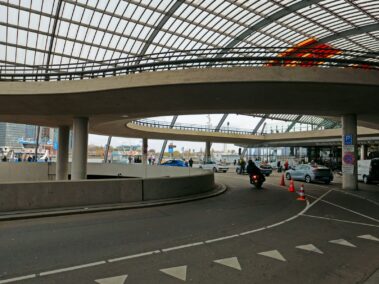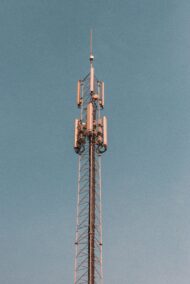Unlocking the Potential of Urban Development with 5G Networks
Revolutionizing Urban Connectivity through 5G
The Impact of 5G on Smart City Infrastructure is poised to revolutionize urban development and transform the way cities operate and function. As municipalities in Saudi Arabia, the UAE, and beyond embrace the vision of smart cities, the deployment of 5G technology is becoming increasingly integral to the realization of this ambitious goal. With its promise of ultra-fast speeds, low latency, and high reliability, 5G has the potential to improve the performance of smart city infrastructure in unprecedented ways, paving the way for more efficient, sustainable, and connected urban environments.
Smart city infrastructure encompasses a wide range of interconnected systems and technologies designed to enhance the quality of life for residents, optimize resource utilization, and promote economic growth and innovation. From intelligent transportation systems and energy-efficient buildings to advanced public safety and healthcare solutions, smart city initiatives rely on robust digital infrastructure to collect, analyze, and act on vast amounts of data in real-time. With the advent of 5G networks, the capabilities of smart city infrastructure are set to expand dramatically, enabling municipalities to leverage emerging technologies such as artificial intelligence, the Internet of Things, and blockchain to address pressing urban challenges and create more livable and sustainable communities.
Transforming Urban Mobility and Accessibility
One area where 5G networks are expected to have a transformative impact is urban mobility and transportation. By providing ultra-low latency connectivity and supporting high-density network deployments, 5G technology has the potential to revolutionize the way people and goods move within cities. From autonomous vehicles and connected traffic management systems to real-time navigation and ride-sharing platforms, 5G-enabled solutions promise to make urban transportation safer, more efficient, and more environmentally sustainable. In cities like Riyadh and Dubai, where rapid urbanization and population growth are placing increasing strain on transportation infrastructure, the deployment of 5G networks represents a strategic investment in the future of mobility.
In addition to improving the performance of existing transportation systems, 5G technology also has the potential to enhance accessibility and inclusivity for all residents, including those with mobility challenges or disabilities. By supporting the development of innovative mobility-as-a-service solutions and on-demand transportation options, 5G networks can help reduce barriers to mobility and ensure that all members of the community have access to essential services and amenities. This focus on equitable access and social inclusion is central to the vision of smart cities and underscores the transformative potential of 5G technology in shaping more inclusive and resilient urban environments.
Creating Sustainable and Resilient Urban Environments
Another key benefit of 5G-enabled smart city infrastructure is its ability to promote sustainability and resilience in the face of climate change and other environmental challenges. By enabling more efficient resource management, optimizing energy consumption, and reducing carbon emissions, smart city solutions powered by 5G technology can help cities mitigate their environmental impact and build a more sustainable future. From smart grid systems and water conservation initiatives to green building design and urban agriculture, the integration of 5G technology into smart city infrastructure opens up new opportunities for cities to embrace sustainable development practices and enhance their resilience to natural disasters and other disruptive events.
Furthermore, the deployment of 5G networks can also strengthen urban resilience by improving the responsiveness and reliability of critical infrastructure systems, such as emergency response and disaster recovery. With its ability to support real-time communication and data exchange between connected devices and sensors, 5G technology enables cities to detect and respond to emergencies more quickly and effectively, reducing the impact of disasters on residents and communities. This enhanced situational awareness and proactive risk management are essential for building resilient cities that can withstand and recover from a wide range of shocks and stressors, from extreme weather events to cyberattacks.
Conclusion
In conclusion, the advent of 5G networks represents a major milestone in the evolution of smart city infrastructure, offering cities in Saudi Arabia, the UAE, and beyond the opportunity to unlock new levels of connectivity, efficiency, and sustainability. By leveraging the power of 5G technology, municipalities can build smarter, more resilient urban environments that enhance the quality of life for residents, drive economic growth, and promote social inclusion. For business executives, mid-level managers, and entrepreneurs, understanding the transformative potential of 5G in urban development is essential for driving innovation, shaping future investment strategies, and contributing to the creation of more livable and prosperous cities for generations to come.
#5GNetworks #SmartCityInfrastructure #UrbanDevelopment #Technology #Innovation #SaudiArabia #UAE #Riyadh #Dubai #InfrastructureImprovement























